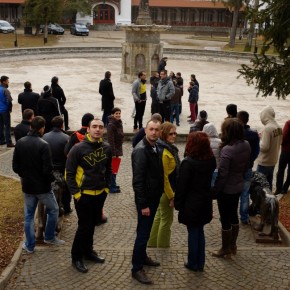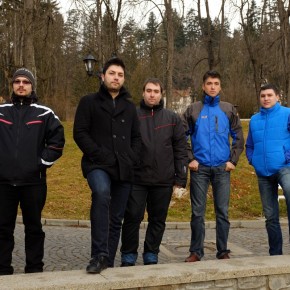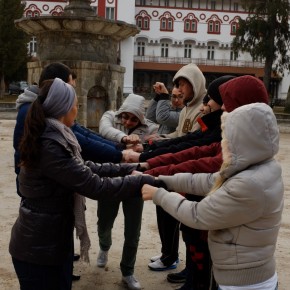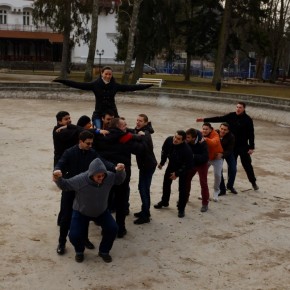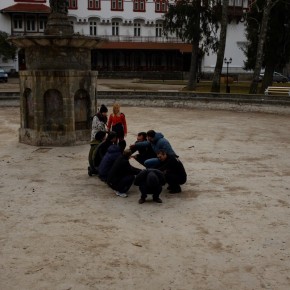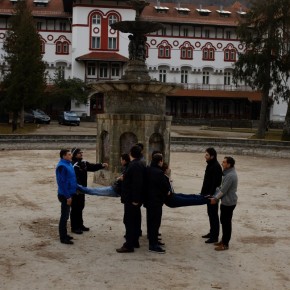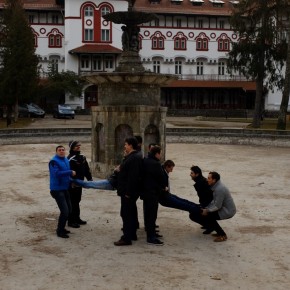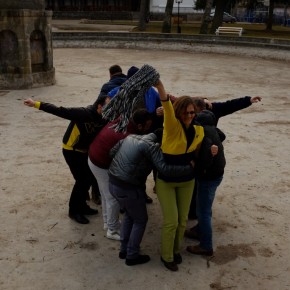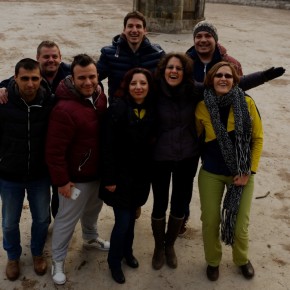The conclusions we have drawn from the activities of the second day:
– A welded team, where members get to know better and to effectively cooperate, will always deliver better results than a team just formed.
– In order to successfully perform a task in a team, it is important to distribute roles before starting the work
– At the time of change, it is important that members support and trust others to quickly adapt to the new structure
– When launching a new challenge, team members can be very creative and original in execution of tasks
The second day of teambuilding started with a team orientation game, Orientation Square, held in the park. Each team received clear instructions on its position relative to the position of trainer: front, back, right or left of him. Depending on the movement of the trainer, teams had to quickly focus and to resume to the initial position. The purpose of this exercise was to represent the frequent changes that can happen within a team and the need for all members to adapt to them in order to have the same performance. It is essential that all members support each other and agree on the manner in which all can integrate and adapt to the new structure, so that team results are not affected.
The next activity, Transformers, involved the building-up of a a swing, helicopter, zip, row boat or a cannon shot by each team, from the bodies. In this exercise, we observed a noticeable development of the teams, which have become more welded and had better results than a teams just formed. The results have involved less effort from the team and its members due to improved communication and collaboration. In this new stage, teams defined the roles from the beginning, they set preparation time and executed in a creative way the proposed task. The conclusions drawn from this exercise applies to teams that work in the office: a welded team, where its members know and have a common goal will always deliver better results and be more efficient in completing the tasks.
Our Teambuilding program was developed by Titus Peride and Elias Consulting Group.

